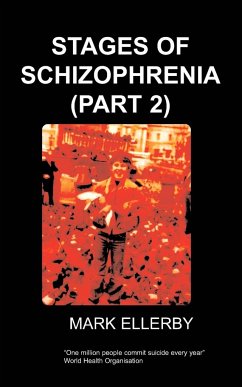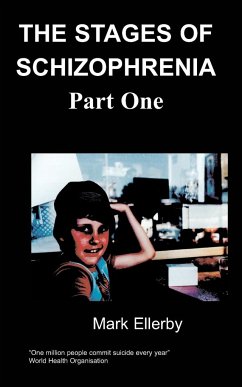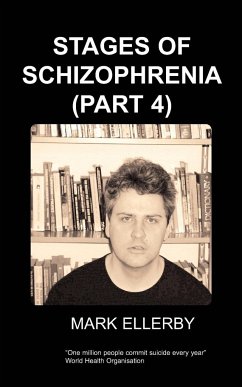By Mark Ellerby ISBN: 9781847470980 Published: 2007 Pages: 132 Key Themes: schizophrenia, self-help, recovery Description This collection of essays deals with the later stages of schizophrenia. The first section concerns what it is like to experience the illness in the long term. This is followed by what it is like to experience a sense of recovery from the illness. Again it is often said that you cannot know what it is like to have schizophrenia unless you have had it yourself. I beleive that this account can give some further insights beyond those contained in the first volume. About the Author My biographical history is very much dominated by schizophrenia which began at age 21. I had just graduated from university and starting a PhD. course in political philosophy. I had to give up my PhD. after a five year struggle with the illness due to a lack of information to hand about what hearing voices actually is. Example Essay Sometimes families know more about schizophrenia than the patient. This can help because trusting a parent means that going to see a psychiatrist will not seem so threatening. It will be obvious to the parent that persecutory delusions are not real, though it may not be to the sufferer who thinks they are real. This reassurance is essential to the whole business of being sectioned - as it is for being taken into hospital, staying there and ultimately taking ones medication. It makes the whole process less frightening, for example that the doctors are not there to simply to lock you up etc. This realisation can take a long time even with family support but without it distinguishing between psychosis and reality can be sometimes impossible. Families are themselves put under a lot of pressure by the acute suffering schizophrenia can inflict and by the label itself. They have to balance the professional image of the psychiatrist and the negative media image of the illness in order to understand what is happening. In this process families will come under additional pressure and often sadly some sufferers never receive the support they need as families may not be able to cope. To them it seems everything is happening at once the illness, the stigma, being sectioned - all in additions to life other problems, stresses and strains. Some may even need anti-depressants as a result. Often even in hospital it is difficult to get one-to-one contact with the nursing staff, much less the doctors. Having frequent family visits is often the main personalised contact with some one. This is important in that it does give someone to talk to which I think is the main sort of therapy available. This is especially important while the doctors find the right drug. In my case this took 12 traumatic months and family contact was at times a life- line to reality, not to mention the outside world. Here family supervision is vital to be able to go on leave and thus to help to be keeping independent - to avoid being 'institutionalised.' I also think having a break from hospital, which can be very monotonous, is as important as being there!
Hinweis: Dieser Artikel kann nur an eine deutsche Lieferadresse ausgeliefert werden.
Hinweis: Dieser Artikel kann nur an eine deutsche Lieferadresse ausgeliefert werden.








